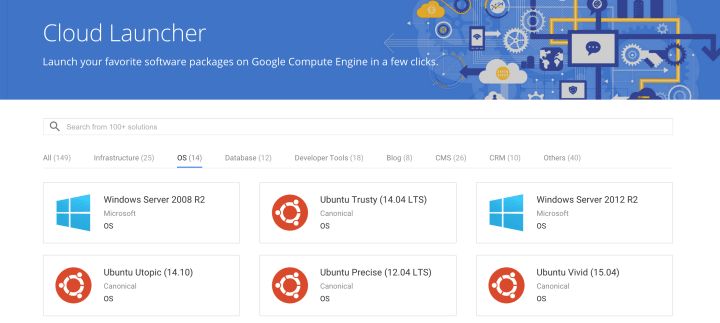Juju Support for Google Cloud Platform
Udi Nachmany
on 3 June 2015
 As you may have noticed in our release notes, the recent release of a stable 1.23.2 Juju core (and its 1.23.3 follow-on) is packed with goodies such as support for systemd (and Vivid), improved proxy support for restrictive networks, new charm actions, as well as a first run at Juju service leader elections – and the list goes on!
As you may have noticed in our release notes, the recent release of a stable 1.23.2 Juju core (and its 1.23.3 follow-on) is packed with goodies such as support for systemd (and Vivid), improved proxy support for restrictive networks, new charm actions, as well as a first run at Juju service leader elections – and the list goes on!
For public cloud users of Ubuntu, we are particularly excited to let you know that this version includes support for Google Compute Engine (GCE). If you’re a Google Cloud Platform user, you can now spin up, scale, and modify production workloads easily and quickly, with our market-leading, open source universal modelling tool, Juju. If you are already a Juju user and thinking about using Google Cloud Platform, you can take your magic over to them and get going in no time.
Configuring for GCE: https://jujucharms.com/docs/stable/config-gce
Juju 1.23.2 release notes: https://jujucharms.com/docs/devel/reference-release-notes
This ties in very nicely to the upstream work (here and here) we’ve been doing in the past months, to make it easy to deploy Kubernetes servers using Juju, even on cloud environments that are not yet supported by the Kubernetes project.
On a related note, if you’re using Google Cloud Platform you’ve probably taken a look at the sleek Cloud Launcher Google have released recently. And if you looked closely, you also noticed that you can now spin up your Ubuntu VMs using this very friendly UI.
 And at the time of writing, since the list is sorted by popularity, Ubuntu (unsurprisingly) has four of the top six spots.
And at the time of writing, since the list is sorted by popularity, Ubuntu (unsurprisingly) has four of the top six spots.
Talk to us today
Interested in running Ubuntu in your organisation?
Newsletter signup
Related posts
SQL Server 2025 is generally available on Ubuntu 24.04 LTS
Microsoft has announced the General Availability of SQL Server 2025 on Ubuntu 24.04 LTS. Learn about the new CU1 features, including OS-level observability,...
Hiring the Canonical way: trust, humanity, and remote-first thinking
Discover the human-centric hiring philosophy at Canonical. Learn how the makers of Ubuntu prioritize remote-first talent, human-led CV reviews, and finding...
SpacemiT announces the availability of Ubuntu on K3/K1 series RISC-V AI computing platforms
SpacemiT (Hangzhou) Technology Co., Ltd. today announced a collaboration with Canonical to make Ubuntu available on SpacemiT’s new K3 SoC and the existing...
